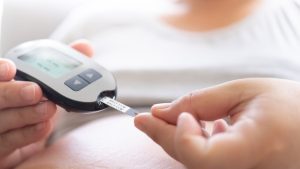From The Web / Suicide: Study Finds Four Genes that May Raise Risk

According to the World Health Organization (WHO), almost 800,000 people die by suicide every year.
Among people aged 15–29, suicide is the second leading cause of death worldwide.
In the United States, almost 45,000 people die as a result of suicide every year, making suicide the 10th leading cause of death among individuals of all ages.
Men who are white and middle-aged, however, are at the highest risk of dying by suicide.
Although the environment has an effect on the incidence of suicide, some studies have pointed out that genetic factors also play a key role. In fact, older studies have estimated the heritability of suicide at 50 percent.
New research that appears in the journal Molecular Psychiatry uses modern genomic sequencing techniques to find specific genetic factors that may raise the risk of suicide.
Dr. Douglas Gray, who is a professor of psychiatry at the University of Utah (U of U) Health in Salt Lake City, is the senior author on the paper.
He explains the motivation for the study, saying, “Past studies of families and twins informed us that there is significant genetic risk associated with suicide.”
“Genes are like blueprints. The first step is to find the genes that increase risk. Identifying specific genes may lead to new treatments for those who [need them],” says Dr. Gray.
To identify these genes, Dr. Gray and colleagues zoomed in on 43 families that were at a higher risk of suicide.
By focusing on such a “genetically homogeneous group,” the researchers reduced the influence of environmental factors — such as stress due to a divorce, unemployment, or the loss of a loved one, or having easy access to means of taking one’s life, such as firearms.
Hilary Coon, Ph.D. — a professor of psychiatry at U of U Health and the first author of the paper — explains the methods used in the research. “In this study,” she says, “we began by looking for the low-hanging fruit, the genomic changes that could affect the structure or function of a gene.”
Source: Medical News Today

